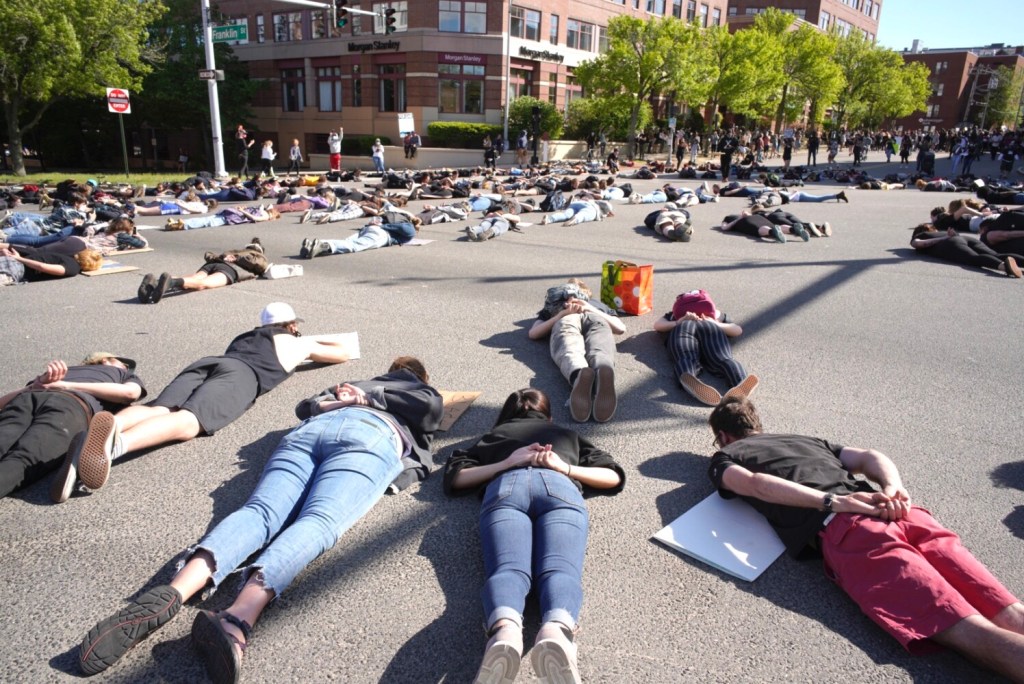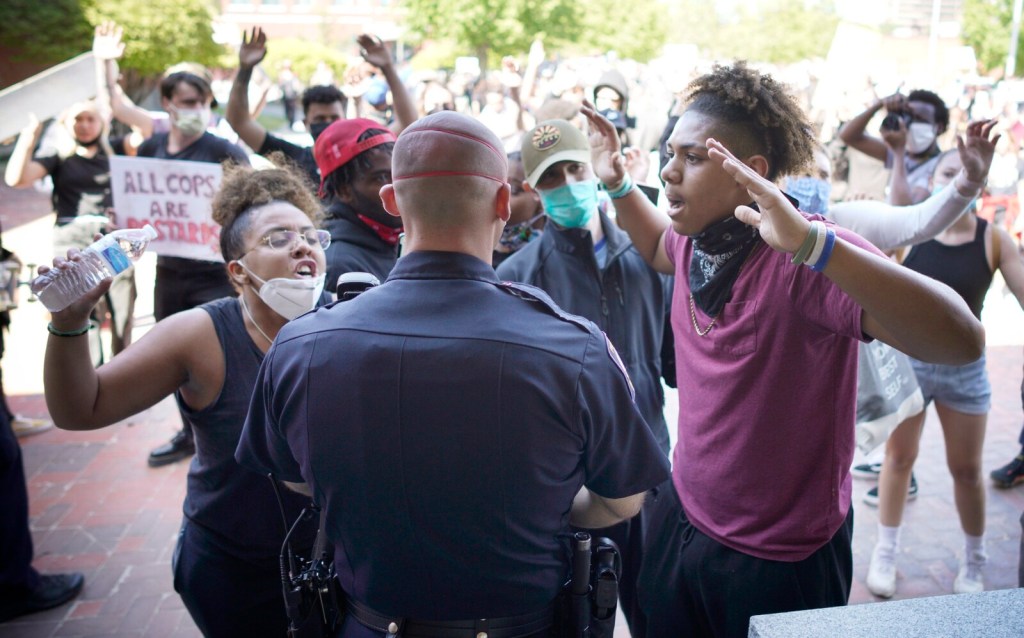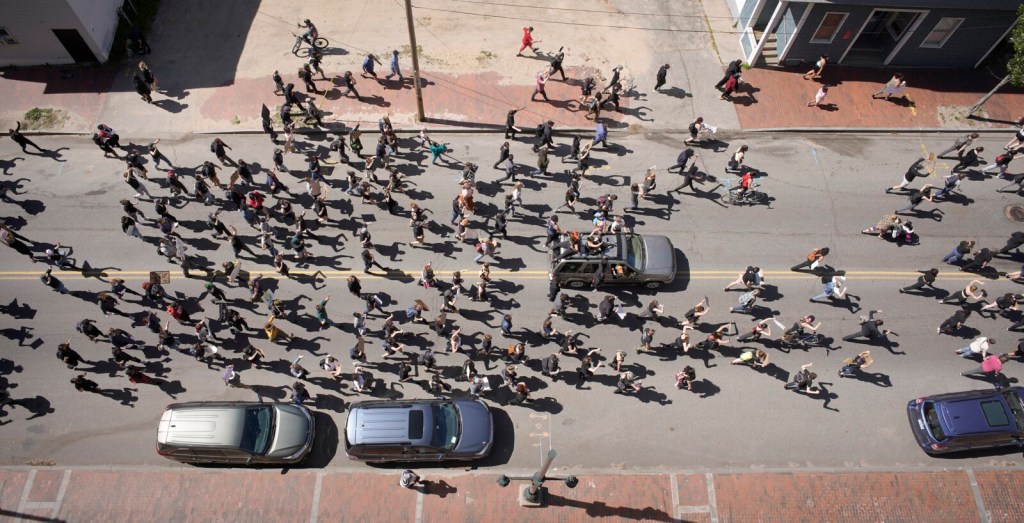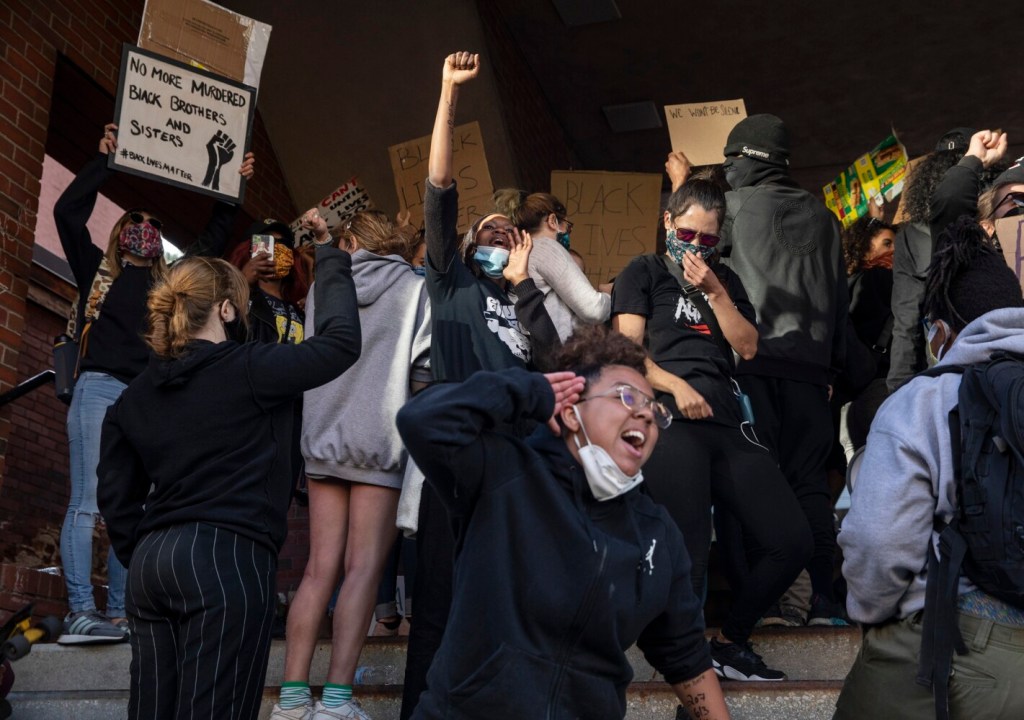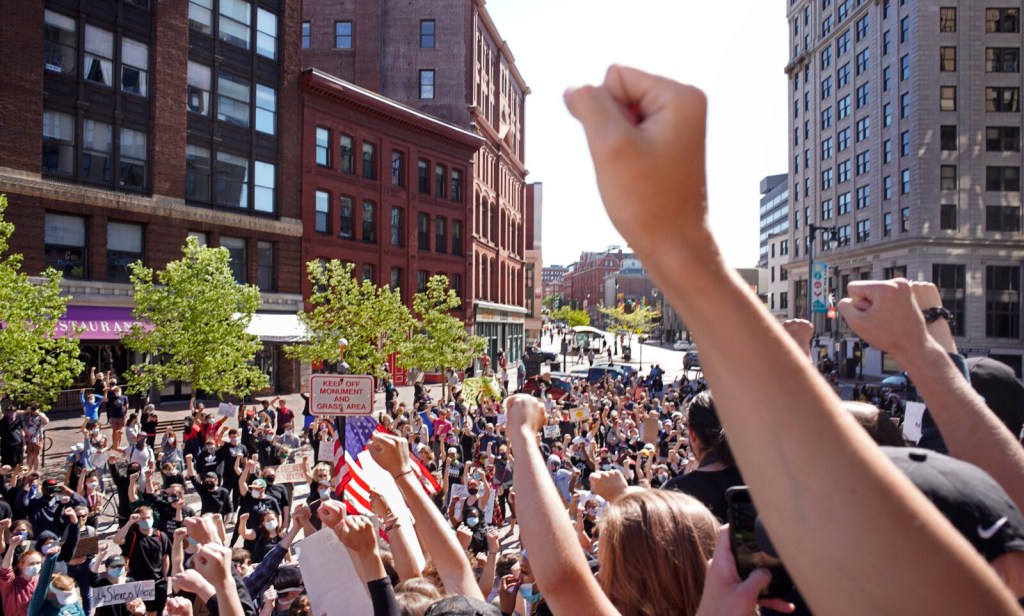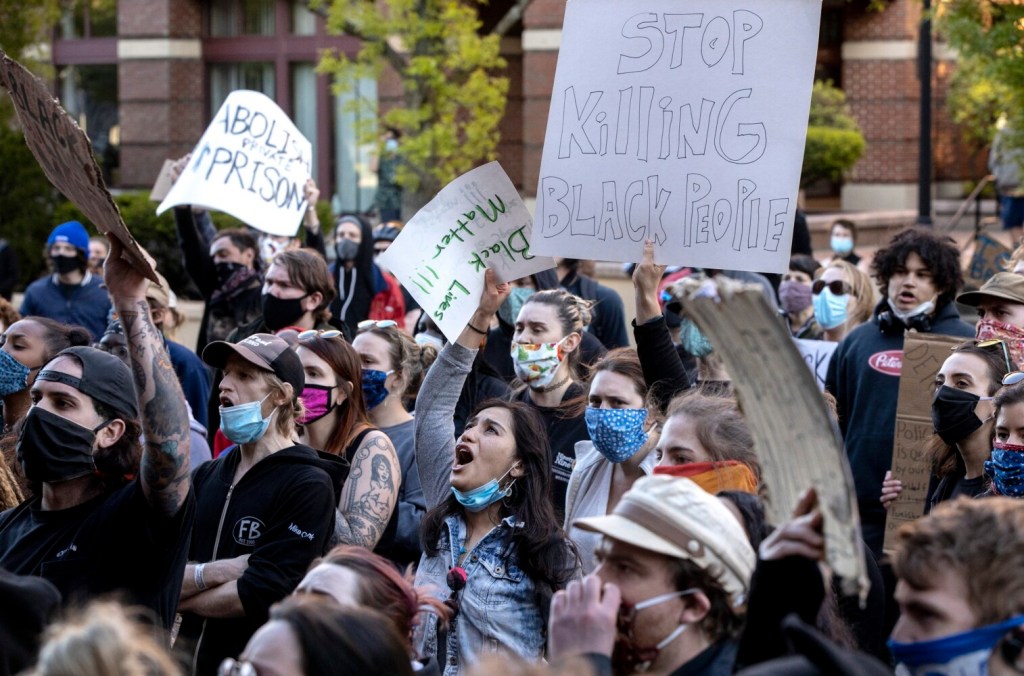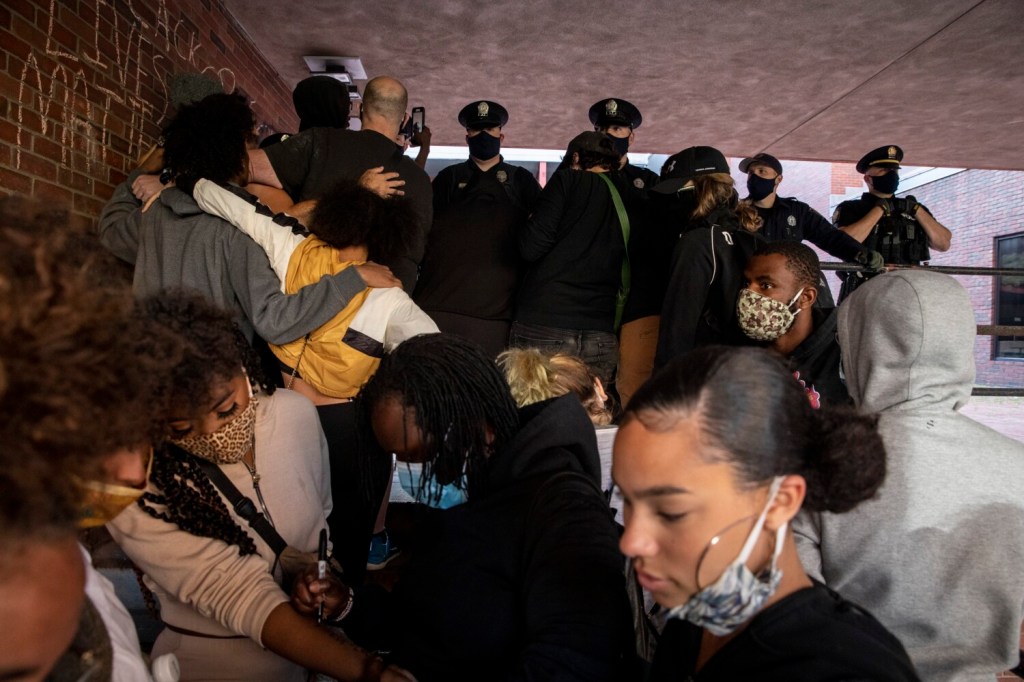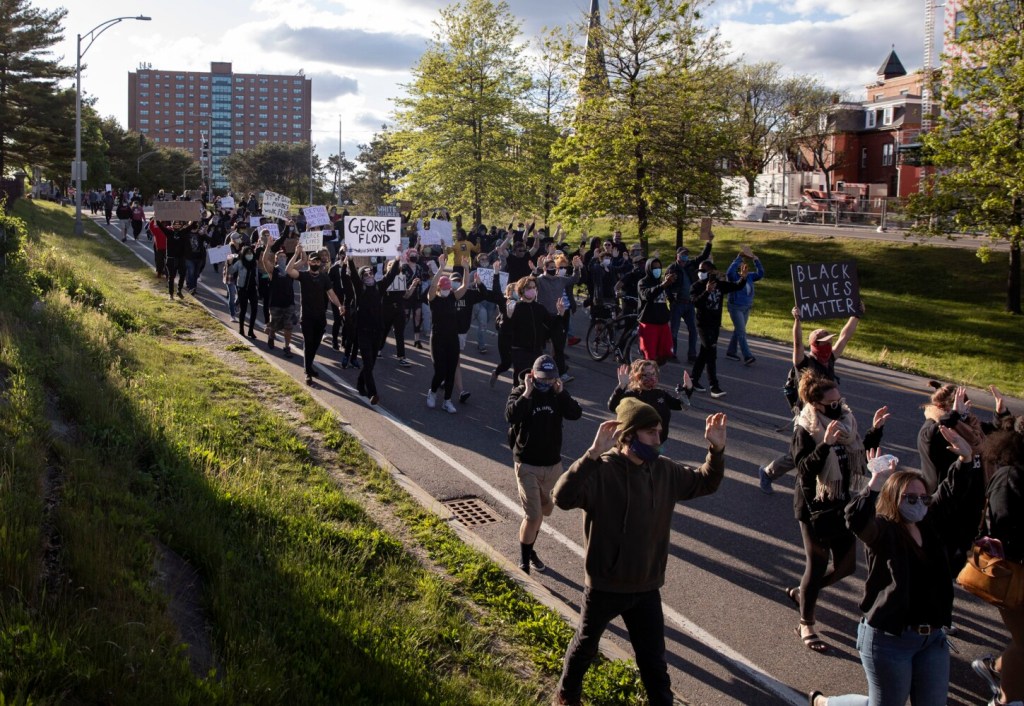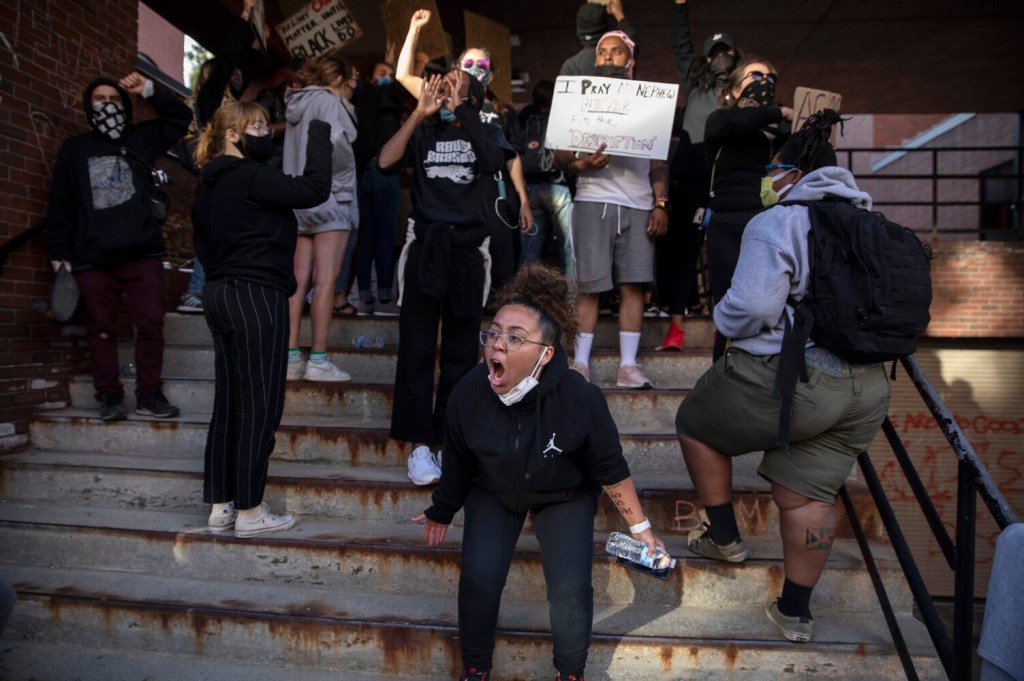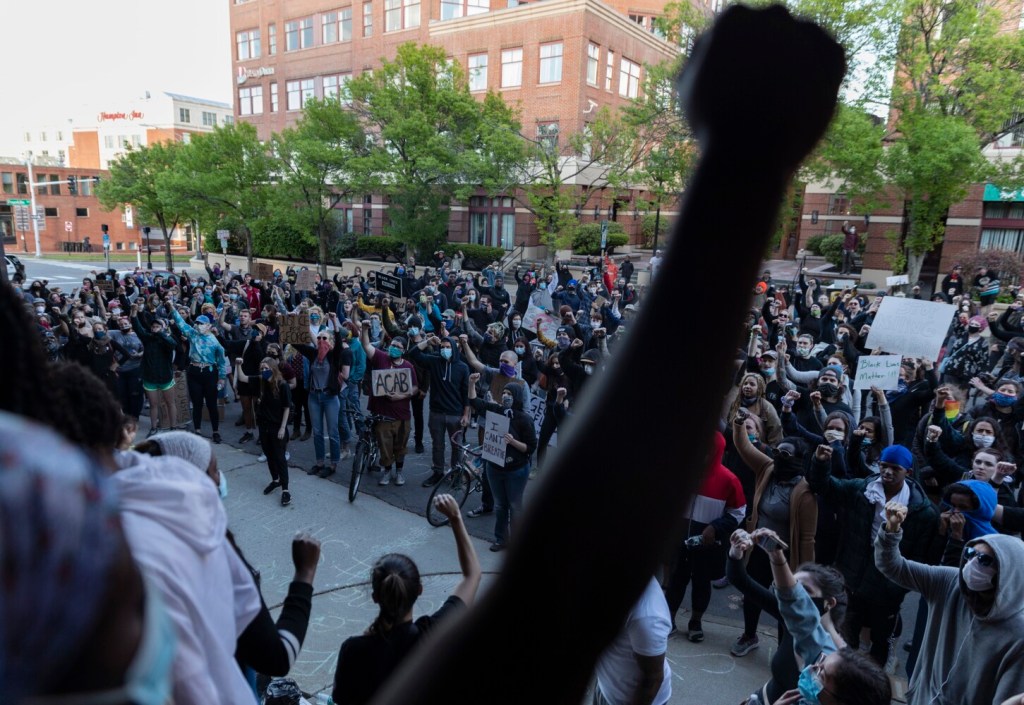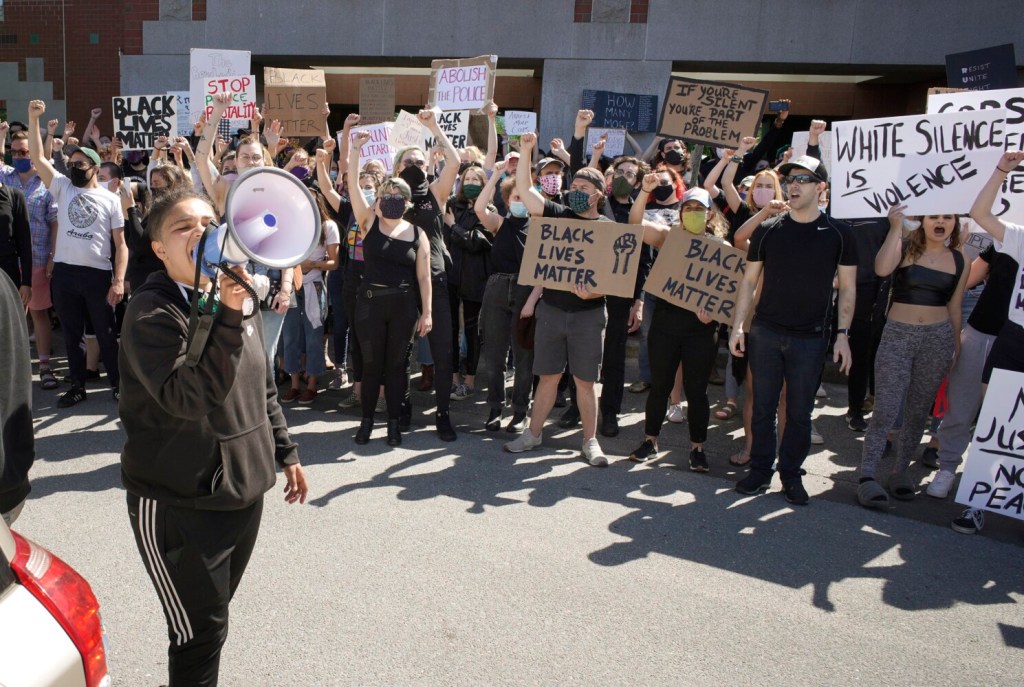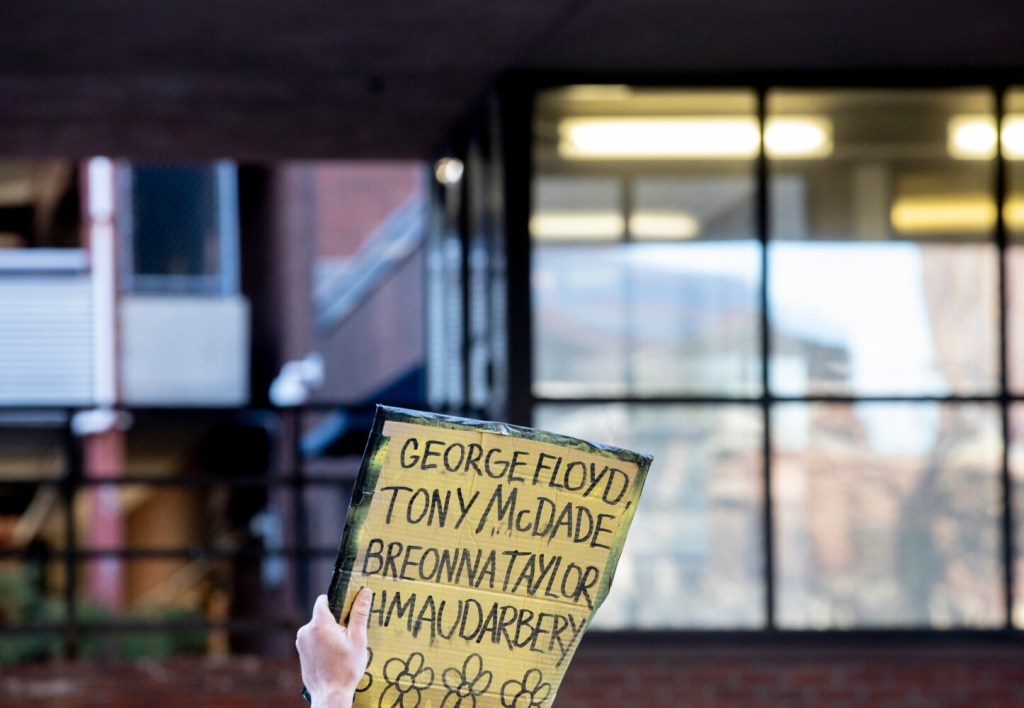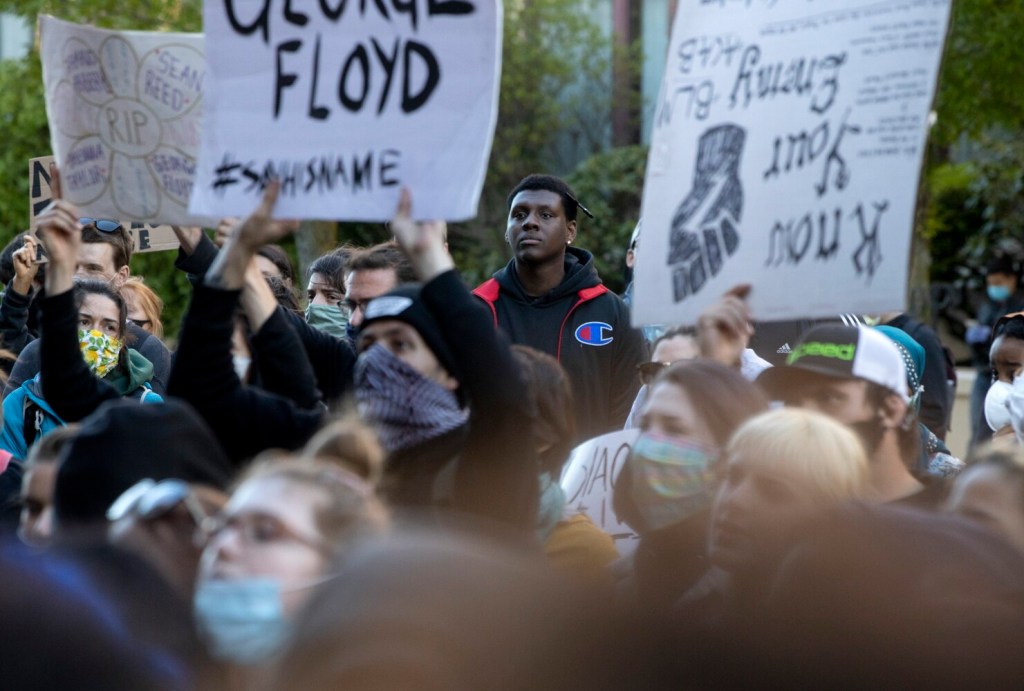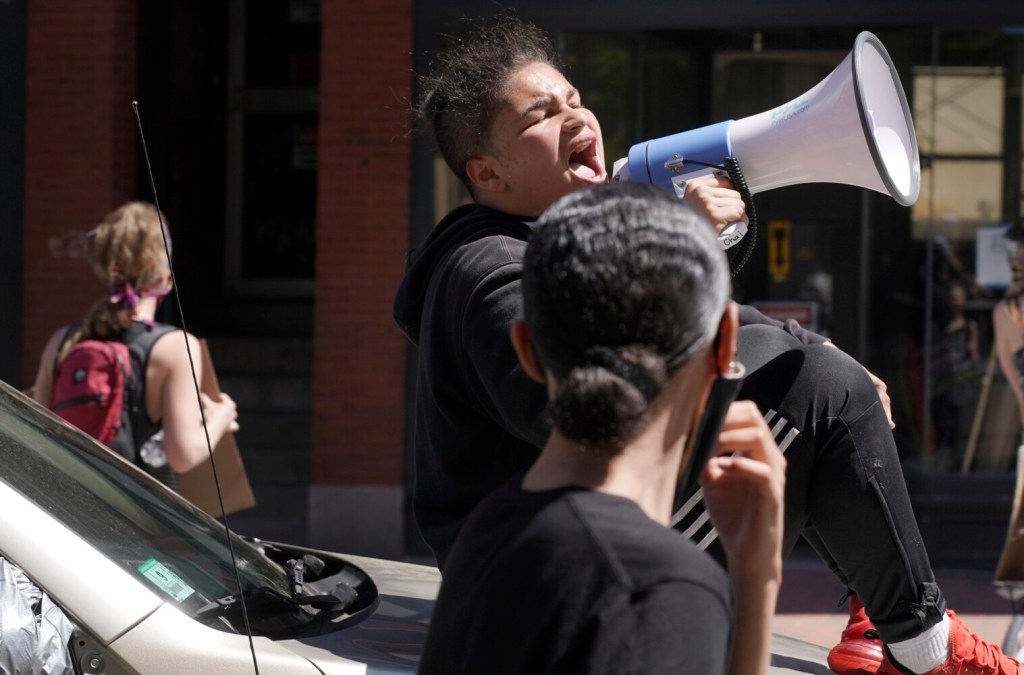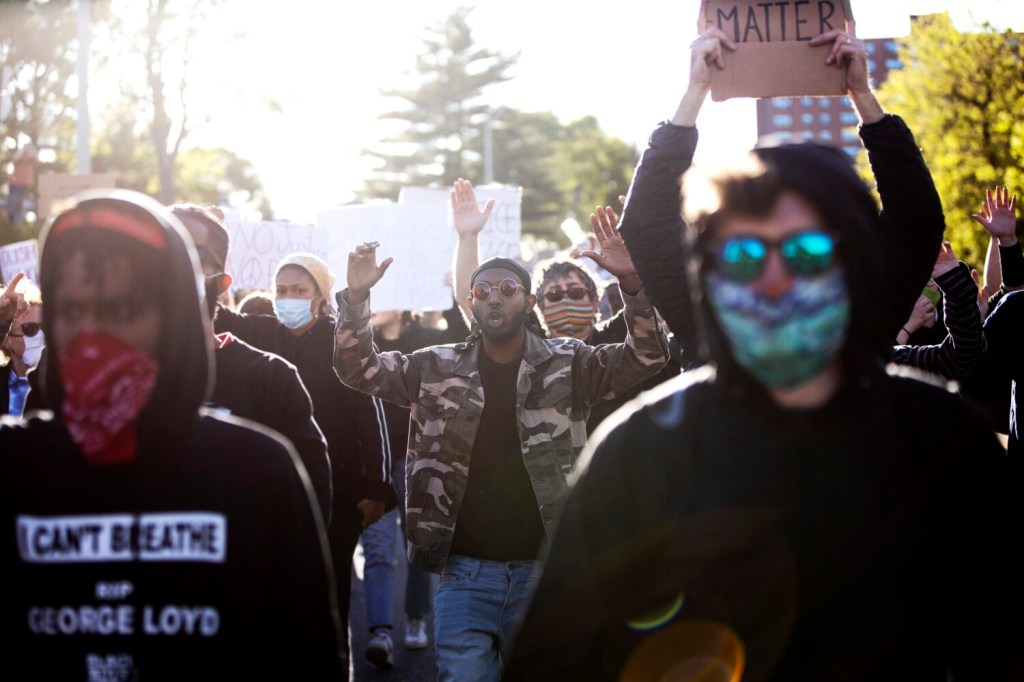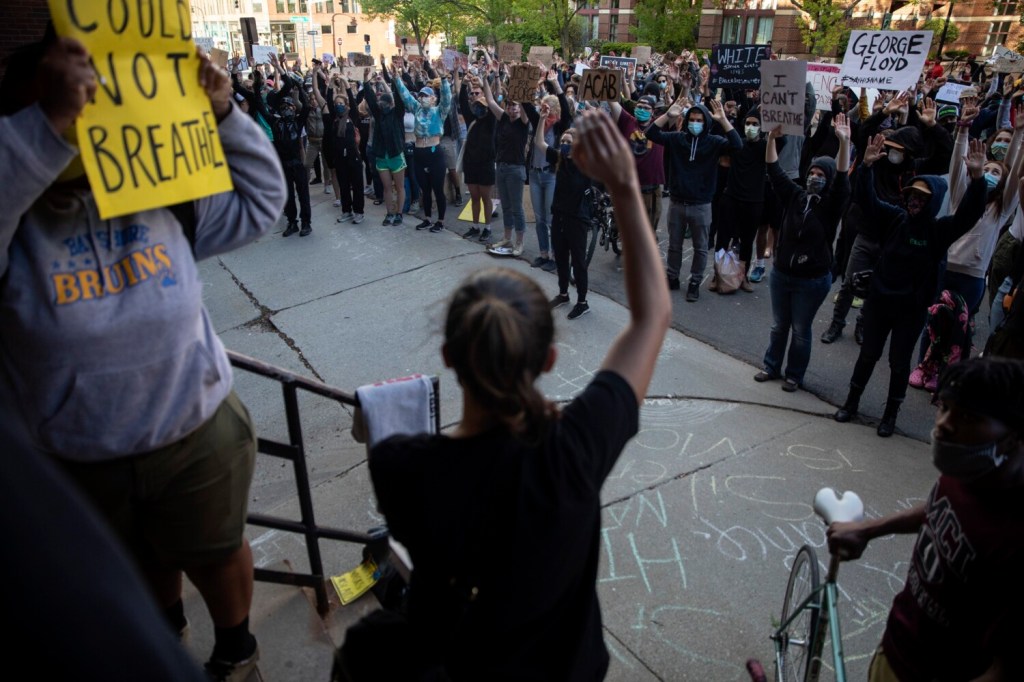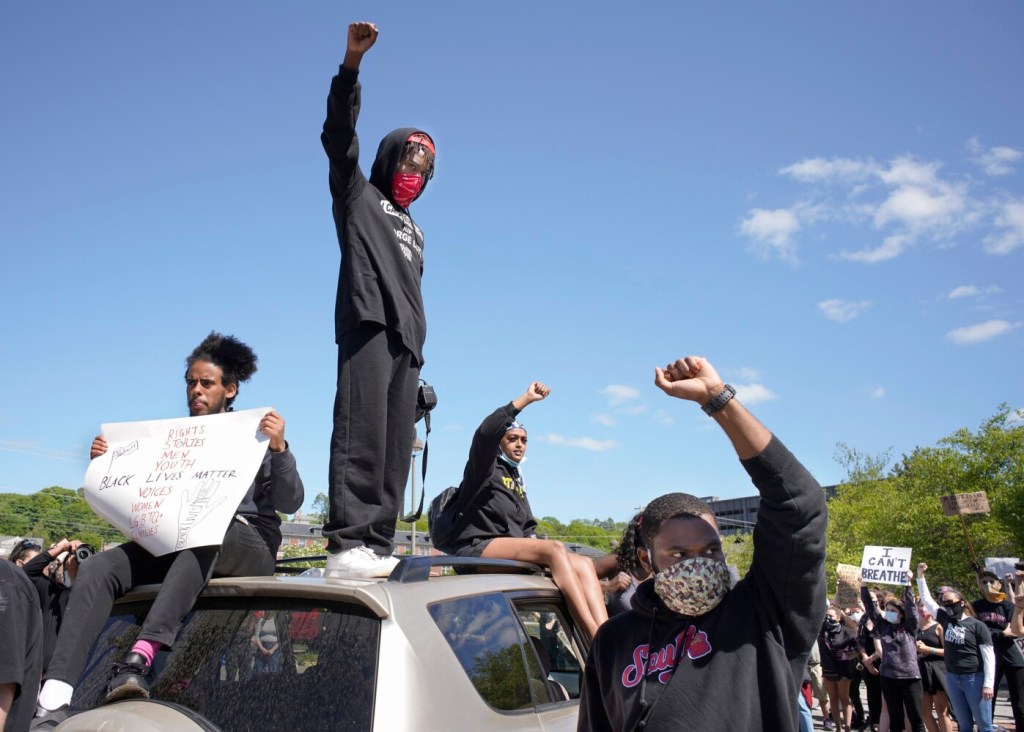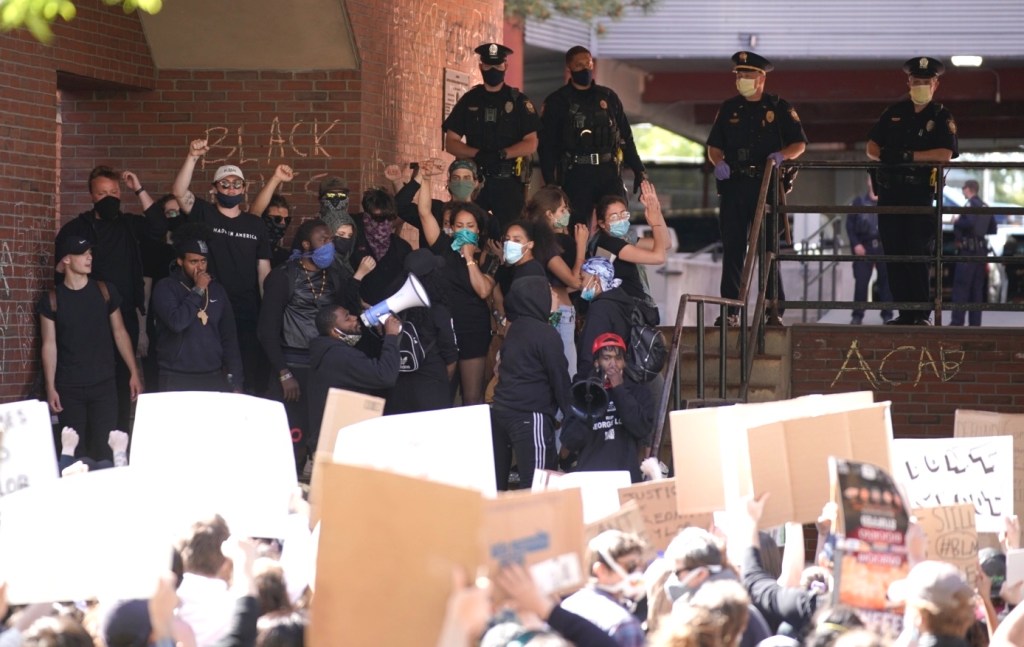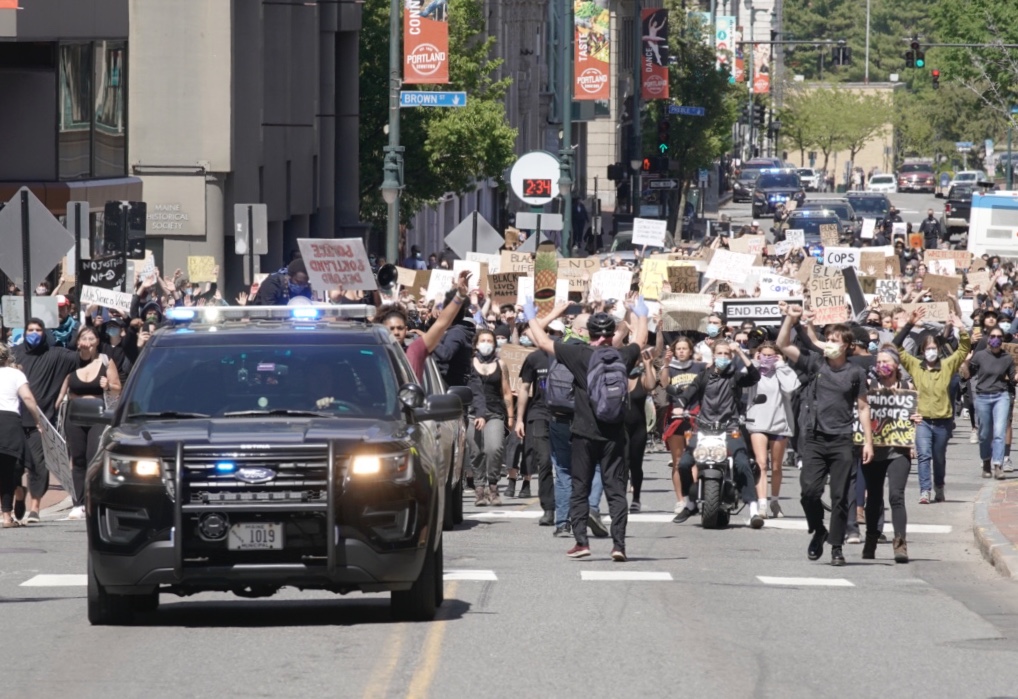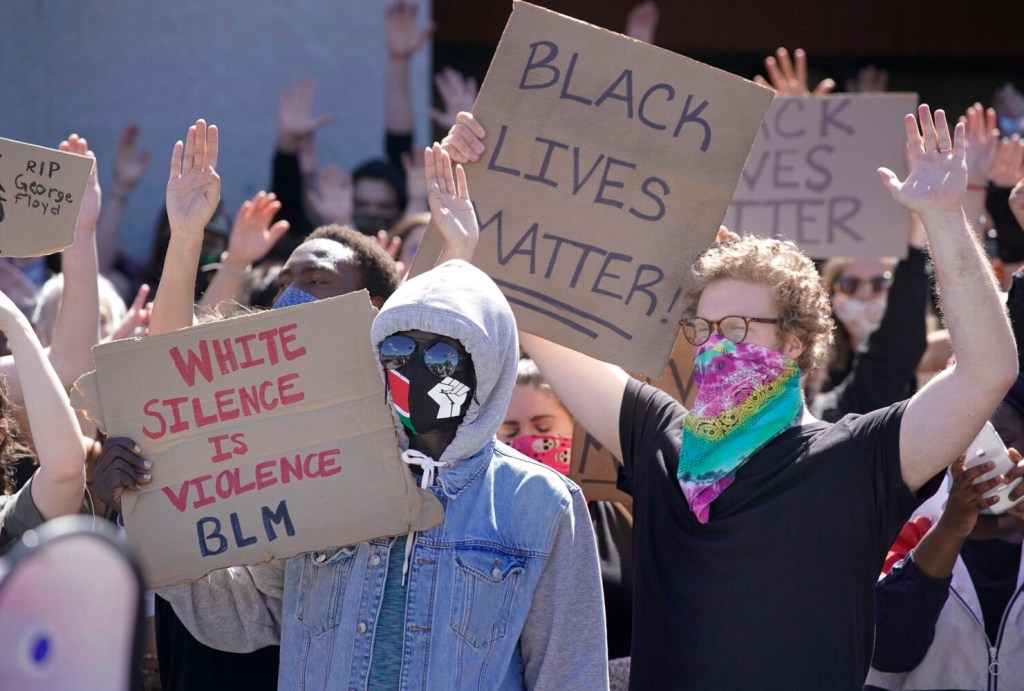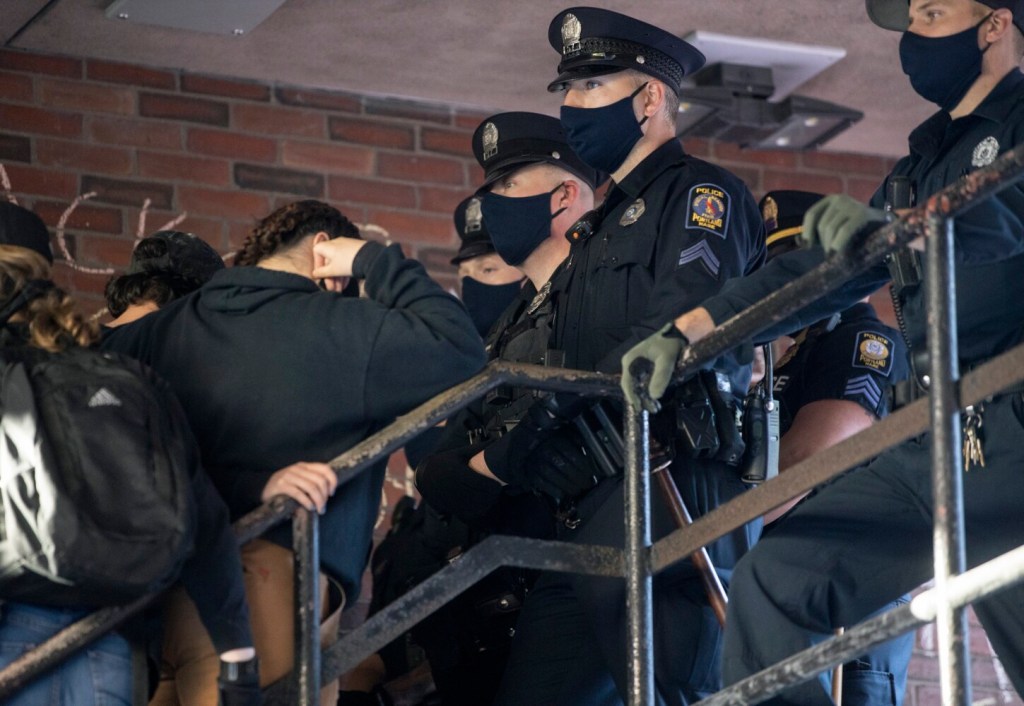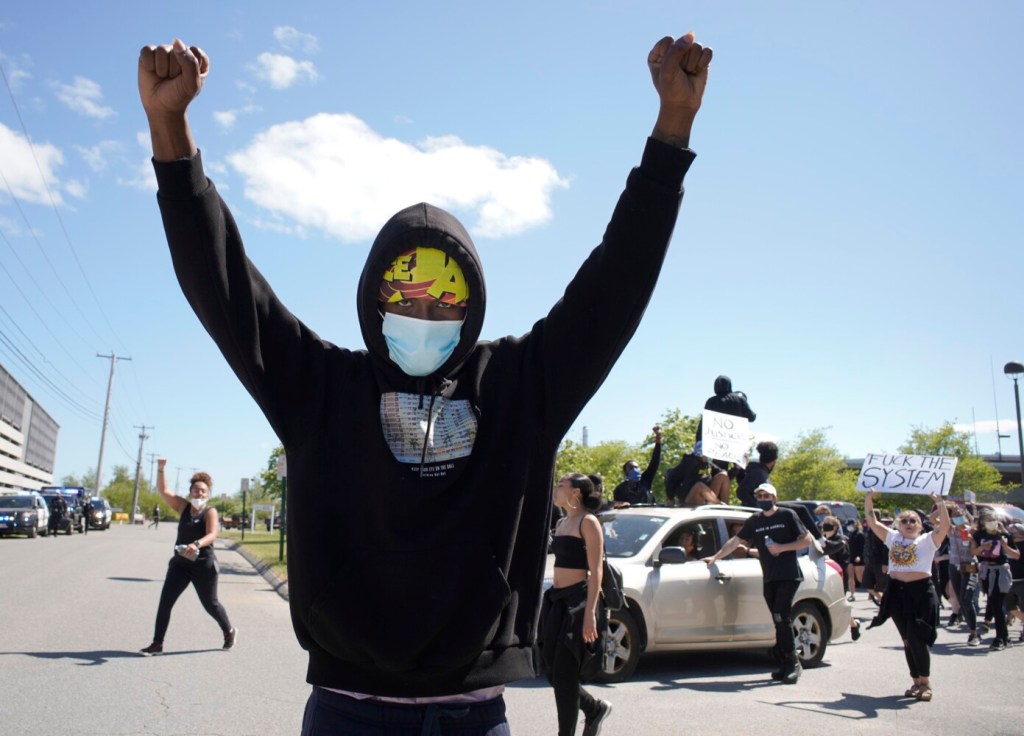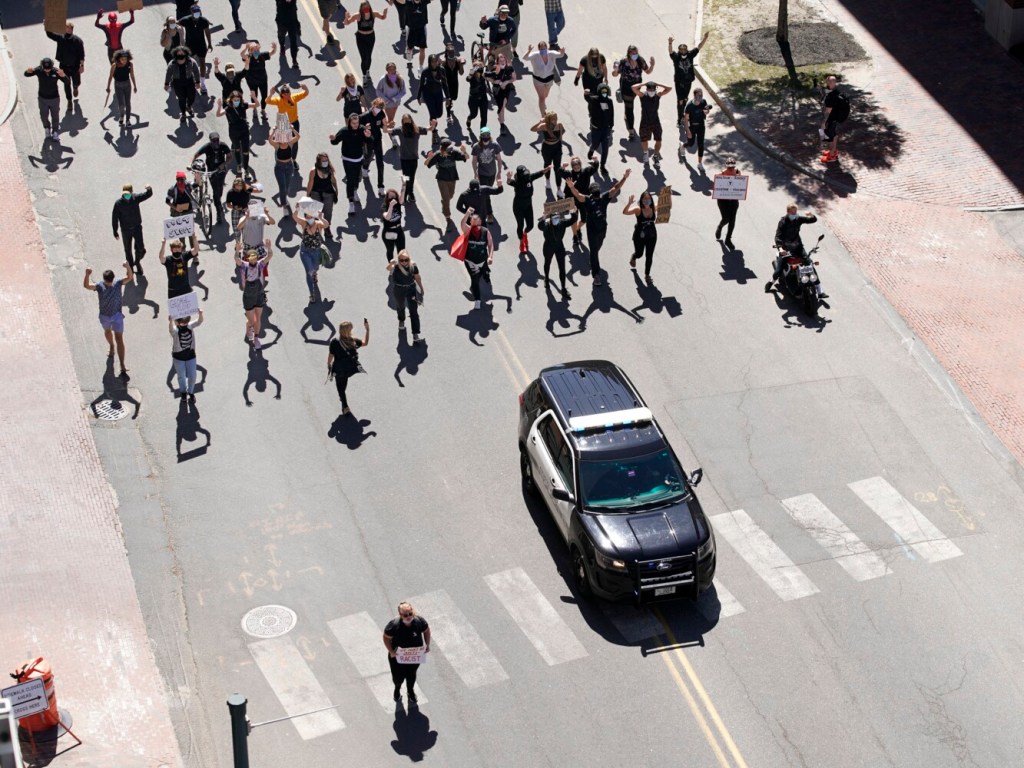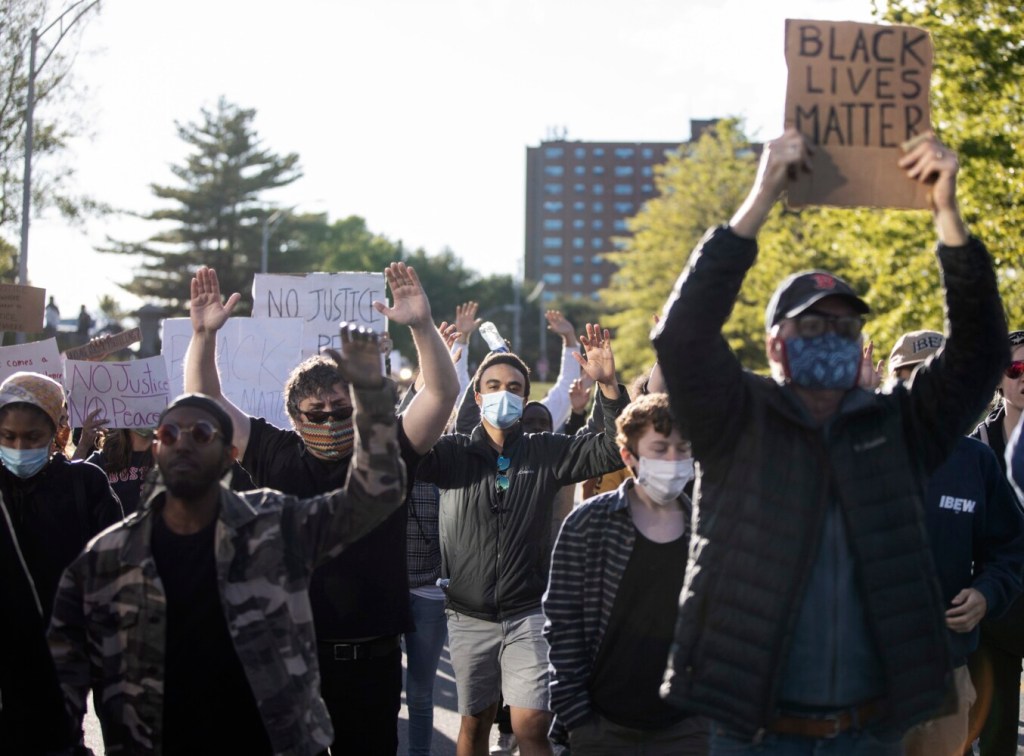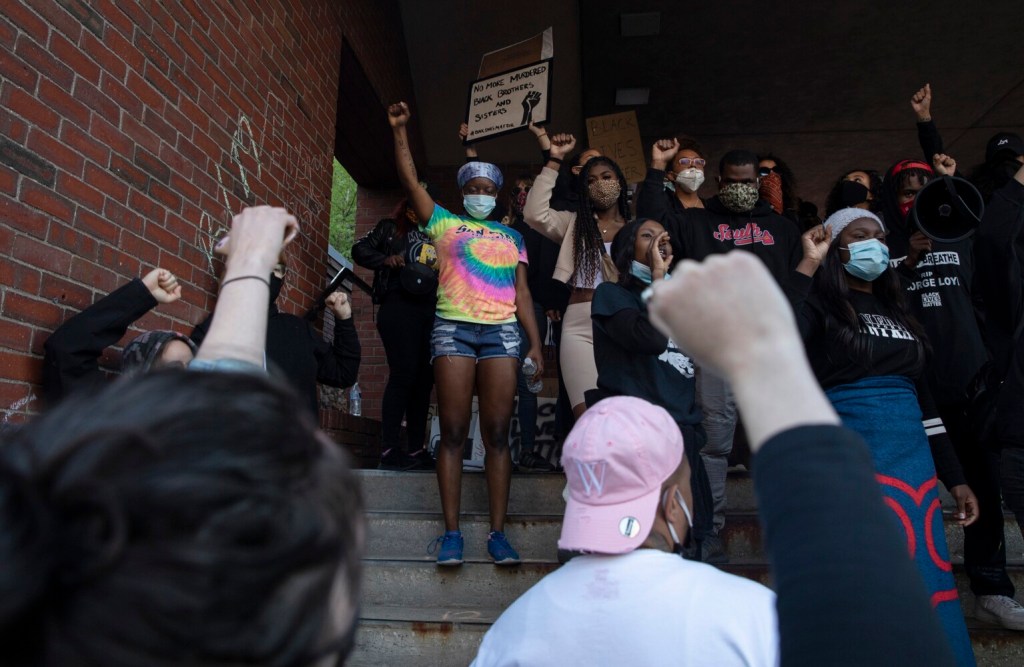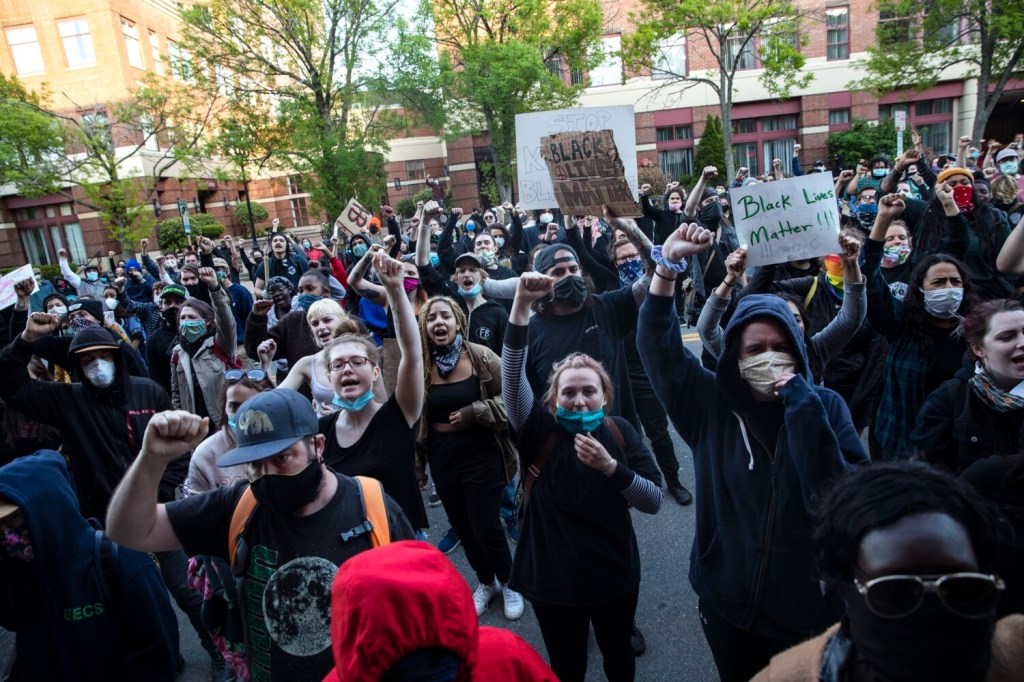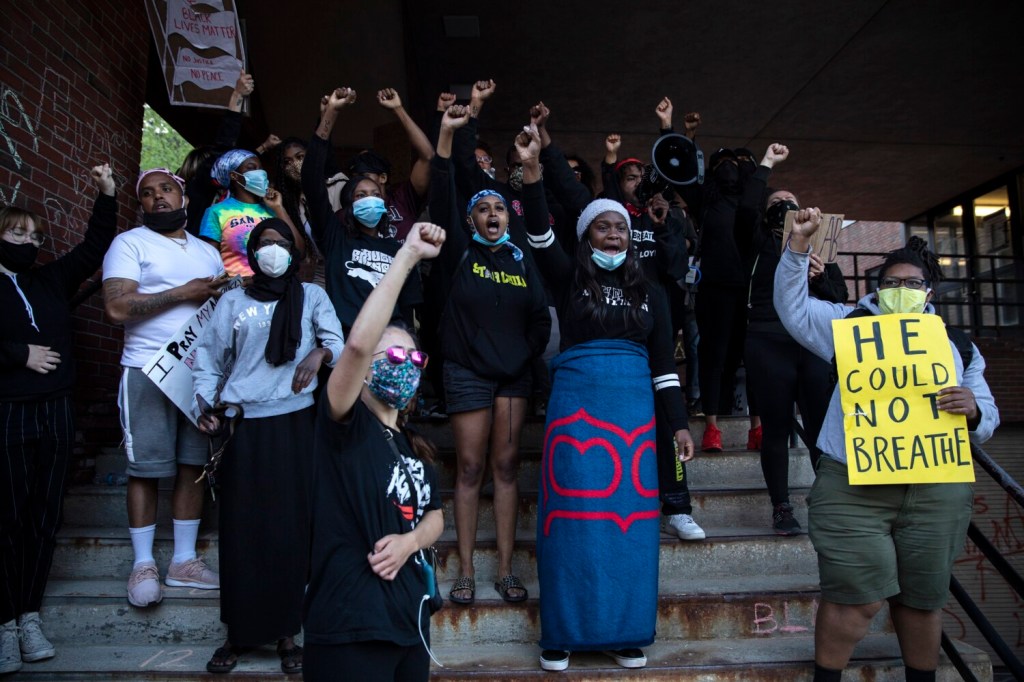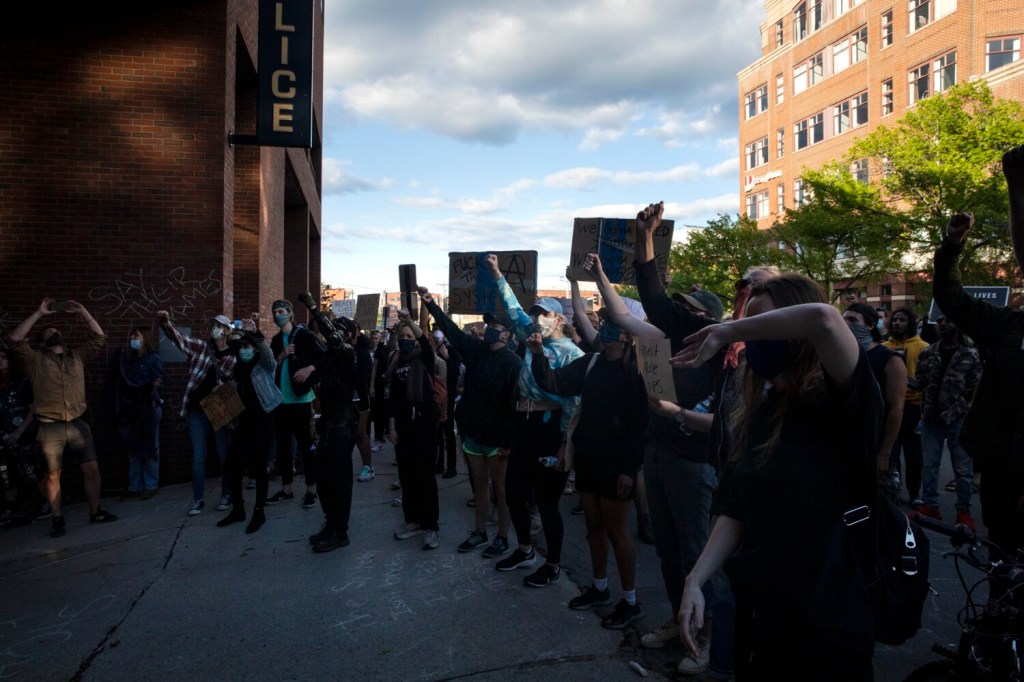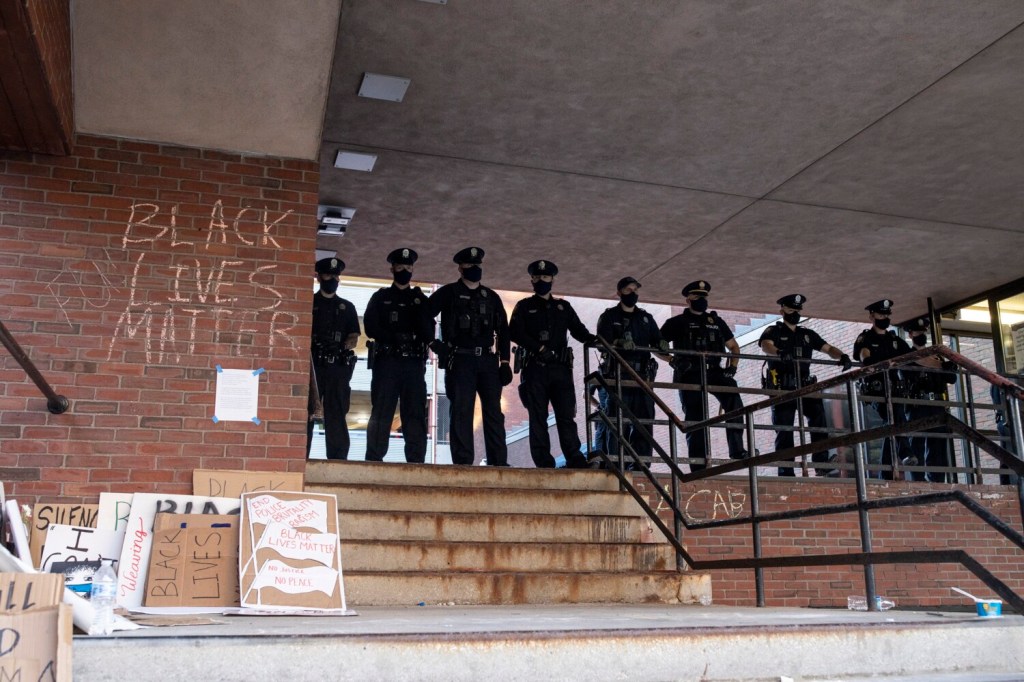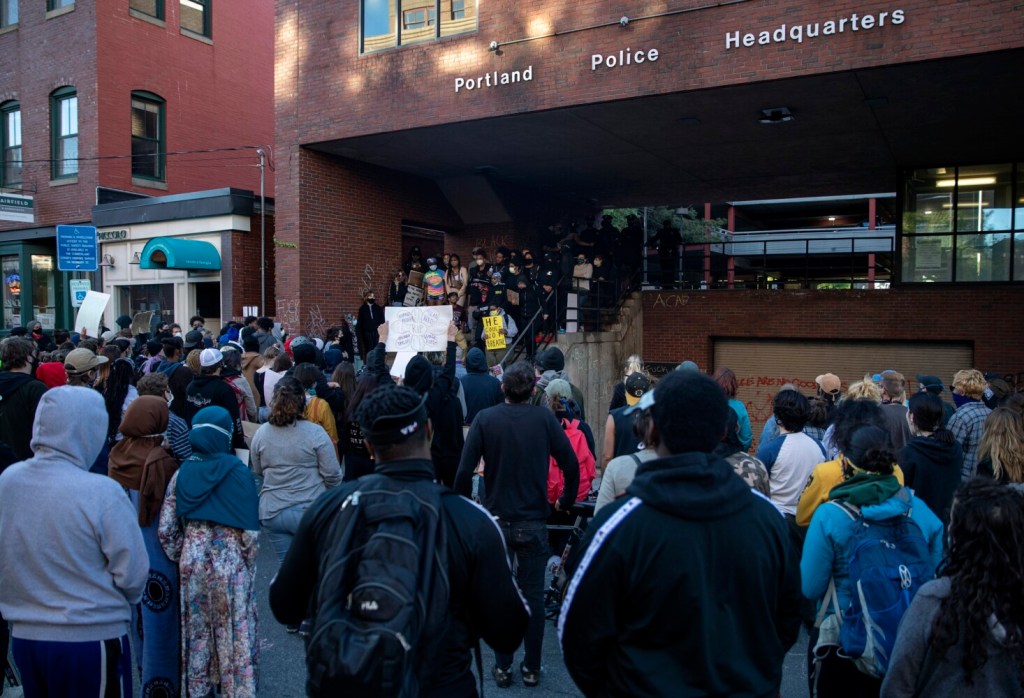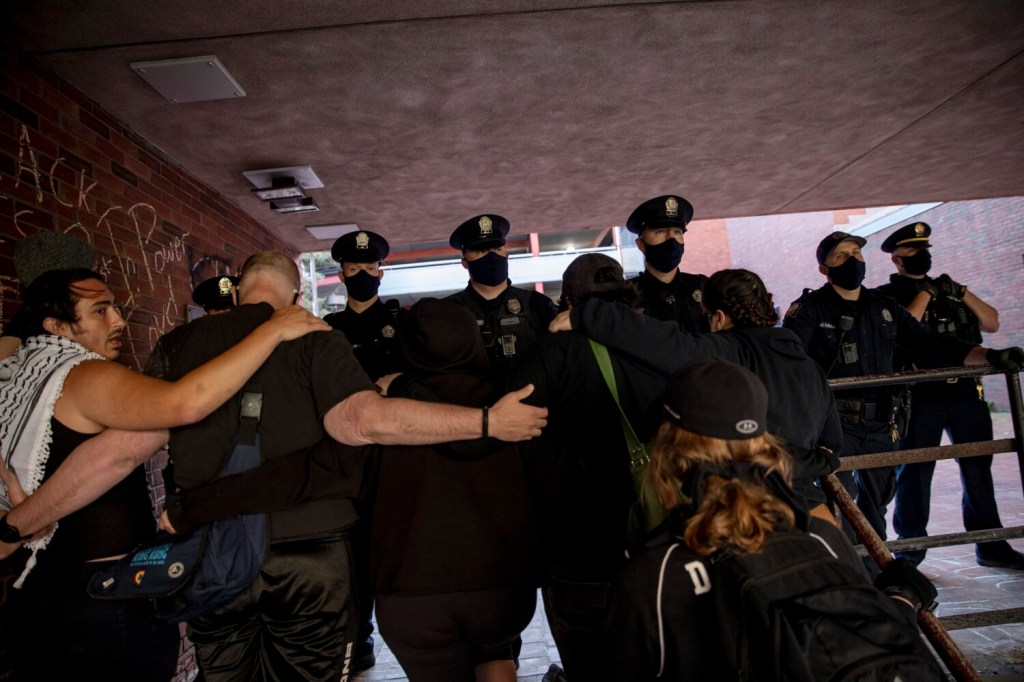More than 300 protesters marched the streets of Portland and demonstrated for hours outside the Portland police station Sunday afternoon, demanding to meet with Chief Frank Clark to discuss their concerns about racial bias after a black man’s death at the hands of Minneapolis police.
Early Sunday evening the protesters blocked several streets around the police station and in the Old Port, but they dispersed about 7:30 p.m. without having met with Clark. Organizers said they would return on Monday.
Attempts to reach the police chief were unsuccessful Sunday night, and a spokesman said he didn’t know why Clark didn’t meet with the protesters. Police said that no arrests were made during Sunday’s demonstrations.
The death of George Floyd has sparked protests across the country, and in Portland hundreds of demonstrators marched down Congress Street on Sunday, chanting, “No justice, no peace! No racist police!”
After walking to the Cumberland County Jail earlier in the afternoon, protesters stopped at the intersection of Congress and St. John streets and held two minutes of silence for a man, Chance David Baker, who was shot dead by a Portland police officer in 2017 at Union Station Plaza. In the days after his death, Black Lives Matter activists rallied to protest the killing of Baker, who was biracial, a light-skinned man with pale blue eyes. The Maine Attorney General’s Office, which investigates all police-involved shootings in the state, later ruled that the shooting was justified.
After the observance for Baker on Sunday, the protesters moved to the police station on Middle Street.

Vanessa Robsham holds a sign while sitting in Middle Street outside the Portland police station during a protest on Sunday. Gregory Rec/Staff Photographer
“What we’re fighting for is justice. What we’re fighting for is peace,” said an organizer who declined to give his name.
Police officers stood at the top of the steps leading to the police station, and Lt. Robert Doherty addressed the crowd, telling them the department shared the goal of keeping people safe. Still, he asked protesters to disperse for public safety during the coronavirus pandemic.
“We want everyone in front of us to be safe and everyone behind us to be safe,” Doherty said.
Protesters demanded that Chief Clark come out to speak. Doherty asked that they agree to disperse after Clark spoke. They refused, and fanned out to neighboring intersections, where they formed human chains and lay on the pavement to block traffic.
Around 8 p.m. Sunday, after protestors had dispersed, about a dozen Portland officers, each wearing rubber gloves, came out of the Middle Street building and removed a pile of cardboard signs that had been stacked on the sidewalk next to the station.
The officers walked past an underground garage door to the police station that had been defaced with graffiti chalk. The messages read, “There are no good cops, RIP George Floyd, Silence is Violence, and Trayvon Martin.” Martin was the 17-year-old African American teenager who was shot and killed in Florida in 2012 by George Zimmerman for allegedly acting suspiciously.
The protest Sunday was one of several days’ demonstrations over Floyd’s death. On Friday, hundreds of people marched through downtown Portland in two protests that concluded peacefully, with officers blocking traffic and clearing paths for people to walk.
Chief Clark on Friday called the conduct of the Minnesota police officer whose knee was on Floyd’s neck “unacceptable.” Clark, Officer Les Smith, president of the Police Benevolent Association, and Sgt. Eric Nevins, president of the Supervisory Officers’ Association, issued an open letter to the community on Friday.
“As human beings and law enforcement professionals, we are saddened and deeply disturbed by the recent and tragic police-involved fatality in Minneapolis, Minnesota, and the negative impacts such incidents have not only upon the trust of our profession, but within our broader communities as well,” the statement reads. “Our hearts go out to George Floyd’s family and friends, and we, like many, are awaiting answers and justice.”
The Minneapolis police officer, Derek Chauvin, kneeled on Floyd’s neck for several minutes, despite repeated pleas by Floyd that he couldn’t breathe. Chauvin was arrested Friday and charged with third-degree murder.
“My first reaction was what if that was my brother or father or son?” Clark said in an interview Friday. “To say it was disturbing is probably an understatement.”
But despite protesters’ calls to see the chief, he did not appear on Sunday.
As Sunday evening wore on, groups of protesters blocked intersections all along Congress and Middle streets in the Old Port, from Franklin Street to Temple Street.

Hundreds of people march up Congress Street during a protest Sunday over the recent death of George Floyd and other African Americans in the United States. Gregory Rec/Staff Photographer
At the intersection of Middle and Exchange streets, a man in a pickup truck revved his engine at protesters blocking his way, sending up a cloud of exhaust smoke. After a shouting match, he backed up along the one-way street to get away.
A protester with his face covered by a bandanna zipped back and forth along Middle Street on a motorcycle, doing doughnuts and making screeching sounds with his tires. People chanted, “Black lives matter” and “This is what democracy looks like.”
Over and over, the protesters called on white Mainers to support people of color and fight for policing reform.
“I’m sickened by the killing of George Floyd, and as a white person I wanted to show up,” Erin Brown of Portland said. “I don’t want it to be their problem. It’s all of our problem.”
After more than an hour of blocking streets throughout the Old Port, protesters faced a decision about whether to stay and what to ask for. Leaders of the demonstration appeared to argue.
“What are we doing? What are we even asking for? It’s all so nebulous,” one woman shouted at a male organizer while both were standing in the intersection of Middle and Market streets.
He replied that they wanted a conversation with a police chief, and justice for Baker, the man who was shot in 2017.
Nearby, two police officers stepped out of their parked cruiser to speak to protesters.
“We put ourselves on the line for you. We would die for you,” Officer Darrel Gibson said to the group. “I don’t even know you and I would die for you.”
“It’s just a uniform,” the officer next to him said.
“We don’t trust the uniform,” a protester said.
For a moment, the confrontation appeared ready to escalate. A chain of protesters with linked arms blocked the stairs leading to the police station. Each wrote a phone number on their arm – someone to bail them out if they were arrested, they said.
At one point, a boy outside the police station picked up a rock. Other protesters noticed and shouted at him to put it down. No violence occurred that a reporter present could see. Protesters repeatedly emphasized that they were committed to nonviolence.
Some protesters wrote chalk messages on the brick and concrete exterior of the station, which soon was practically covered. “Stop killing us,” one message said.
Eventually protesters decided to disperse, but first gathered again outside the police station on Middle Street to regroup and discuss plans to come back.
Speaking through a megaphone, Mary Tadsse, an organizer from Portland, recalled a confrontation with an unfriendly driver that evening who had tried to get through their cordon blocking the road. She likened the protesters’ solidarity in that moment to the unity she said communities need to stop racial bias in policing.
“We came together and stayed there, and he backed up, and that’s why we’re here today,” she said.
Other protesters took the megaphone to discuss future plans. They announced that another protest would take place on Monday, with the details to be decided and spread around town via social media.
After several minutes chanting “I can’t breathe” and “Black Lives Matter,” and briefly, with middle fingers raised, “(Expletive) the police,” the crowd dispersed.
In an interview afterward, Tadsse urged white people who didn’t make it to the protest to come out next time.
“Come fight with us,” she said. “It’s not that hard to get out of your homes.”
Tadsse said Clark’s absence showed police didn’t take their concerns seriously. Asked what protesters wanted from the police, she said that they wanted to know that authorities were listening to the community’s anger and concern about racial bias in policing.
“Listen to us. Change,” she said.
Staff Writer Dennis Hoey contributed to this report.
Comments are not available on this story.
Send questions/comments to the editors.

